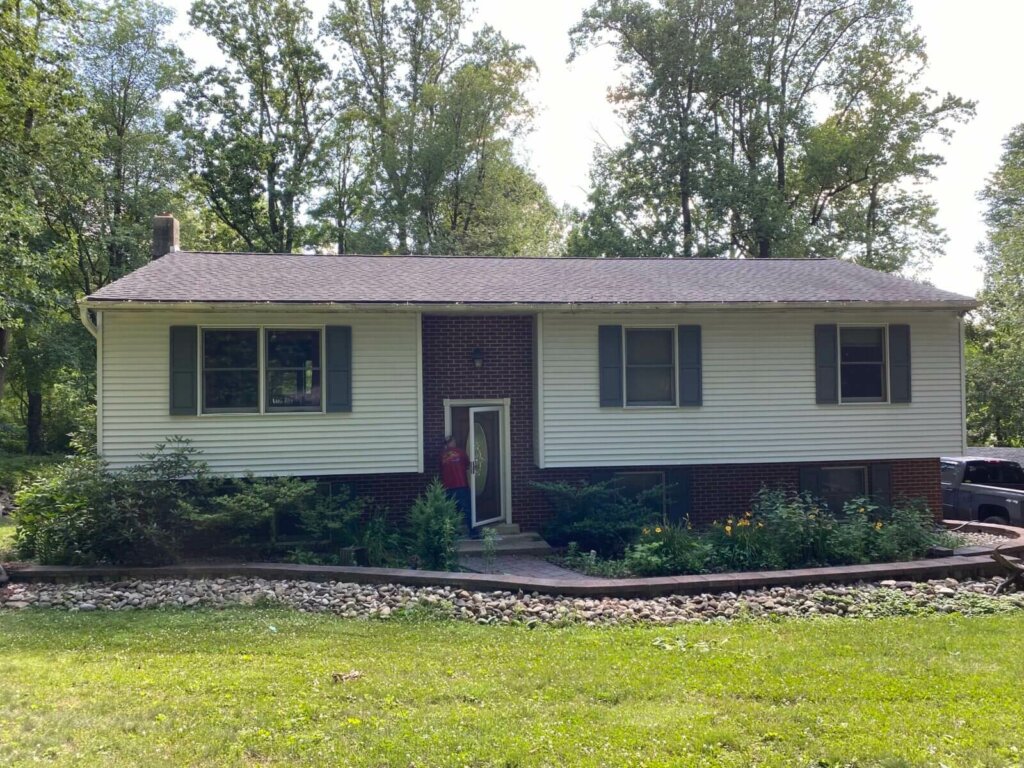What to Know About Probate in Real Estate
A probate sale is a real estate transaction where a house needs to be sold under the probate court’s supervision. Some may immediately wonder how a real estate transaction would end up under the supervision of a court. Did the original owner do something wrong? Was the owner on probation, and we didn’t know it? Although it may initially sound as if something illegal is going on, that is not the case at all.

All of the assets, including money, investments, and real estate, that a person possesses during their lifetime are included in their estate when they pass away. Probate is the legal procedure that determines how these assets are sold or distributed among heirs. Probate sales may come up if a home has been inherited from the original owner, who is now deceased. A will often specifies what happens to a deceased person’s belongings after they pass away. But occasionally a will is imprecise or the deceased leaves no will behind, leaving the family to determine what to do with their possessions. In these cases, a probate court will likely need to be involved in the selling process of the property.
Define Probate in Real Estate
There are multiple conditions that typically indicate that a home sale will need to go through a probate process, and a probate sale will likely occur. Remember that even if the home you are selling or buying seems to check all the boxes, probate properties are still going to hold value, and although the legal process may take a bit longer, probate proceedings happen every day, and probate courts get involved for good reasons, benefiting both the homeowner and the home buyer.
Key Indicators of a Probate Sale
- The original property owner has died.
- The property is to be sold by one or more of the heirs.
- Subject to probate approval, the heir(s) list the property with a local realtor skilled in the probate process and, if a buyer is found, engage in a contract.
- If the estate is not already in probate, the heir(s) will hire counsel to manage the probate.
The heir(s) receive title to the decedent through probate. - The property can close, and the heirs can take possession of their proceeds at closing once the probate process has transferred title to them as the new lawful owners.
Quick Question: Does a Homeowner’s Death Always Result in a Probate Process?
No, there are numerous actions a person may have taken before their death, such as working with a lawyer to set up a revocable living trust or an irrevocable trust in their estate planning documents, that can help avoid probate with their real property. Learn more about setting up a good estate plan for your future here.
What Does the Probate Process Look Like In Pennsylvania?
There is a wide difference in state probate laws which can have a significant impact on the process of settling an estate and distributing assets, particularly real estate. Every state has its own laws and regulations that govern everything from the required paperwork and court proceedings to the rights of heirs and beneficiaries. The laws and regulations below control the probate process. You can check out links here for each state’s probate court laws.
However, defining probate in real estate, as noted above, is fairly straightforward in all states. According to TrustandWill.com, “Probate in real estate is generally defined as Probate property is any asset or property left by a person who passed away. Additionally, any assets left behind by this person must go through the probate property legal process. Both assets left by a person who passed away intestate—without leaving a will—and assets that will ultimately be distributed under a will may be included as probate property.
How Pennsylvania Handles Probate Properties
The process starts when the will’s designated executor files it with the county’s register of wills, where the deceased person resided. In the absence of a will, the surviving spouse or an adult child will often take over as the estate’s administrator. (The phrases “personal representative” and “administrator” are frequently used interchangeably.) In addition, the personal representative submits a petition for probate, which requests that a probate case be opened at the local probate court, commonly known as the “orphans’ court.”
Forms and More Forms
Many counties’ courts provide all the necessary forms online for you to fill out and print out. A filing fee is required, and it can run into the several hundred-dollar range depending on the size of the estate. In the absence of a will, the court sends “Letters Testamentary” to the executor or “Letters of Administration” to the administrator.

Proven or Unproven Wills
With the use of this instrument, the representative is granted the power to start handling estate matters and collect the estate’s assets. A lot of wills in Pennsylvania “self-prove,” meaning they come with sworn, notarized witness statements attesting to the witnesses’ signatures when they saw the decedent sign the will. If the will isn’t self-proving, the representative will need to obtain sworn testimony from the witnesses and submit it to the court in order to demonstrate the validity of the will.
Let the Public Know and Pay Debts
The next step is for the representative to notify the public, creditors, beneficiaries, and heirs that the probate is about to start. If you are old enough, you may have noticed these types of notices in a local printed newspaper. In the process of the probate sale, the deceased person’s assets, real estate, and any other property is sold, and any outstanding debt or taxes must be paid with the proceeds.
Quick Question: Can an Executor Named Sell Probate Property Without the Beneficiary’s Consent in Pennsylvania?
According to Pennsylvania estate lawyers, Klenk Law, the estate representative can sell probate properties, including real estate, without the consent of the beneficiaries of the deceased person. However, notice of the probate sale of the deceased’s personal property will be given to the beneficiaries so that they know of the sale. However, Klenk Law cautions that an estate representative has a “fiduciary duty to follow the Will’s terms and act in the beneficiaries’ best interest. The beneficiaries have the right to question your every action.” So, beneficiaries would be notified and could ask a probate court to review the real estate sale.
Staying in Touch with the Court and Paying Taxes
The court does not usually need to approve transactions in advance, but the representative is required to submit status updates to the probate court on a regular basis. Unfortunately, anyone who inherits from a deceased individual other than their surviving spouse or a charity is subject to Pennsylvania’s inheritance tax. Although it’s not due until nine months after the death, paying early reduces the estate’s tax liability by five percent.
The state of Pennsylvania does not have an estate tax. Federal estate tax may be owed in the event of an extremely large estate—more than $13.61 million for deaths in 2024. However, thankfully, more than 99.9% of estates do not owe federal estate tax. Eventually, after all bills and taxes have been settled, the representative will be prepared to give the heirs their share of the estate.
Acquiring Needed Assistance: A Real Estate Agent and a Real Estate Attorney
A final accounting that details the contents of the estate, how the assets have been managed, and the distribution strategy for beneficiaries must be submitted to the beneficiaries as part of the probate process. Many representatives find it helpful to hire a probate attorney to help with this process. A probate attorney can help guide a representative through the probate sales and assist the representative with communication with the probate court. Many find a good real estate agent helpful in the process of selling probate real estate. Be sure to inquire to see if an agent you are considering for help with probate real estate has the necessary expertise to guide you well.
Wrapping Up the Probate Process
Finally, it is customary for the beneficiaries to sign a family settlement agreement confirming their approval of the accounting. However, a representative who anticipates future claims from creditors may decide to additionally submit the formal accounting of probate sales to the probate court; if accepted, this may terminate third parties’ ability to obtain assets from the estate. Probate courts often require the accounting of assets and sales of probate properties to be done on their own form, per the court’s orders. As professional homebuyers, we do not claim to be legal experts, so we always recommend you consult with a good local probate attorney. You can also read more about Pennsylvania’s probate process by Mary Randolph, J.D. from UC Berkeley School of Law at Nolo.com
Considerations for Inherited Home Sellers
It might be a difficult nuisance or a beautiful gift to inherit a home from a loved one. You essentially have three options for what to do with the house: move in, rent it out, or sell it, depending on your particular situation. Here is some more information from 717 Home Buyers if you know right now you want to sell.
Questions to Ask Before Selling Inherited Property

Selling an inherited property can sound enticing as you think of potential income possibilities. However, there are some important questions to ask yourself and others who you trust for sound financial advice.
Does the Property Sale Need to Go Through Probate?
As previously discussed, if the property was not part of a revocable living trust or an irrevocable trust, or unless your name was already legally attached to the property, all the property will not likely be able to avoid probate. Additionally, remember that a transfer on death deed is not permissible in Pennsylvania. If the deceased person’s estate is free from probate, and probate law, you can move forward and avoid probate sales.
Does the Property Have a Mortgage?
If so, how will it be paid for using the estate’s assets? As long as you have the resources and want to take on the debt, you can take over the deceased’s mortgage in order to keep the house in the event that there aren’t enough assets to pay off the mortgage or if the other heirs refuse to do so. If this is the case, you should think about refinancing to see if you can receive a lower monthly payment or a better rate. Of course, if a probate sale occurs, the proceeds will only need court approvals if used to pay off the mortgage first. Hopefully, though, you can avoid probate altogether.
What Will be the Cost to Make the House Sellable in the Local Real Estate Market?
Many inherited homes are older and need expensive updates, even if you plan to sell the home in the future. From landscape updates to leaking roofs or foundation problems, repairing an inherited home can put a strain on your personal finances and goals, especially if personal loans are needed for improvement or repairs.
Does the Current Real Estate Market Seem Favorable?
Make sure to research the local real estate market before deciding whether to sell or rent the house. Go over similar homes and their sale prices. Use the “sold” feature in Zillow to assess how many homes have sold in your price range in the last six months. This research can assist you in deciding whether or not selling would be a good option right now. Working with a local professional home buyer like 717 Homebuyers would be a good place to start for market information. 717 Homebuyers will never pressure you to sell but will give you an honest opinion on local real estate and a fair offer on your inherited property.
Probate or No Probate, 717 Home Buyers Can Help
In conclusion, as you can see, navigating the complexities of probate while selling an inherited home can be daunting, but with the right guidance and support, the process can be streamlined and stress-free. At 717 Home Buyers in Lancaster, PA, we understand the challenges inheritors face and offer our expertise to simplify the probate sale process. Instead of investing time and resources into repairing and preparing the property for the traditional real estate market, consider the benefits of working with a trusted home buying company like ours.
With 717 Home Buyers, you can enjoy a hassle-free experience with no closing costs, no repair expenses, and a quick closing. Our cash deals ensure a fair offer and a smooth transaction, allowing you to swiftly move forward with your plans. You can learn more about how we operate at 717 Home Buyers by clicking here. Please consider reading our Google reviews here or watching some videos of satisfied customers here. If you feel that we can be of help and would like a no-obligation offer within about 24 hours, give us a call today at 717-639-2164.


